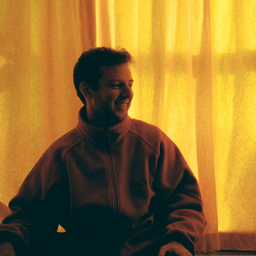
Articles
-
5 days ago |
newscientist.com | Alex Wilkins
The search for atmospheres around the TRAPPIST-1 star system, one of the most promising locations for life elsewhere in the galaxy, might be even more difficult than astronomers first thought because of short-lived radiation blasts from the star. TRAPPIST-1, first discovered in 2016, is a small red dwarf star about 40 light years from Earth with at least seven planets orbiting it.
-
5 days ago |
newscientist.com | Alex Wilkins
A pink-and-blue feast of stellar nurseries and a dense cluster of our neighbouring galaxies appear in the first glimpses of space from the Vera C. Rubin Observatory, which is set to transform our understanding of the universe with unprecedentedly detailed scans of the night sky. These images, which were compiled from around 10 hours of observation from the Cerro Pachón mountain in Chile, are tests that illustrate the sorts of shots Rubin is capable of capturing.
-
1 week ago |
newscientist.com | Alex Wilkins
The asteroid 2024 YR4, which was once thought to be on a collision course with Earth, may still pose a threat to the planet. There is still a chance the space rock could smash into the moon, and the resulting explosion could shower Earth with a cloud of satellite-destroying shrapnel. Astronomers have been tracking the building-sized asteroid since it was discovered in December 2024, when initial predictions of its path raised the possibility of a collision with Earth in 2032.
-
1 week ago |
newscientist.com | Alex Wilkins
A carefully coordinated dance between twin satellites has created the first artificial solar eclipse in space, revealing the sun’s scorching corona in extreme detail. The Proba-3 mission, which launched in December last year, is operated by the European Space Agency (ESA) and consists of two satellites flying at a distance of 150 metres from each other.
-
2 weeks ago |
newscientist.com | Alex Wilkins
If you take the leaders of artificial intelligence companies at their word, their products mean that the coming decade will be quite unlike any in human history: a golden era of “radical abundance”, where high-energy physics is “solved” and we see the beginning of space colonisation.
Try JournoFinder For Free
Search and contact over 1M+ journalist profiles, browse 100M+ articles, and unlock powerful PR tools.
Start Your 7-Day Free Trial →X (formerly Twitter)
- Followers
- 1K
- Tweets
- 449
- DMs Open
- Yes

The asteroid Bennu, which NASA brought back samples from to Earth in 2023, is baffling scientists with its abundance of nitrogen and odd magnetic properties. https://t.co/tDkB8geBg6

A computer contained in a thin thread of stitchable fabric could be used to record, and understand, all sorts of information about the body that devices like Apple watches can't. And it's being tested on Canadian and US soldiers right now, in the Arctic. https://t.co/HOeJ3T4OE9

50 years after it was first dreamt up by Douglas Hofstadter, this fascinating fractal butterfly has been found in a real physical system (in graphene, no less)! It's butterflies all the way down 🦋 https://t.co/dRfxIQ3yDg